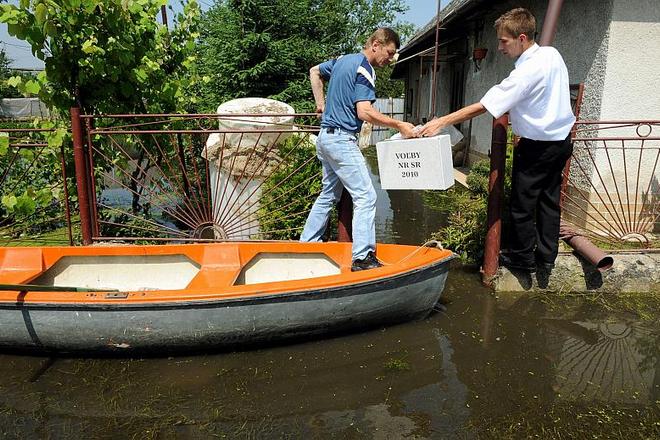The parliamentary elections were far from the only time that voters were asked to turn up at polling stations in 2010. Shortly before the end of the year, on November 27, municipal elections took place across Slovakia. Smer again emerged as the single most popular party, but observers say it did not register a knock-down victory.
“I see the 2010 municipal elections as a defeat,” Mikuláš Dzurinda, chair of the Slovak Democratic and Christian Union (SDKÚ), said, adding that leftist parties were much more successful than the centre-right parties in the race. His statement came after centre-right candidate Magdaléna Vášáryová failed to secure the mayoralty of Bratislava, previously a stronghold of the right. The winner was Milan Ftáčnik, who ran as an independent candidate with Smer’s endorsement.
The results of the mayoral races in Slovakia’s eight regional capitals indeed provided Smer with reason to celebrate, especially since Slovakia’s two largest cities, Košice and Bratislava, went to candidates backed by Robert Fico’s party.
Voters in Košice dispatched the incumbent mayor, František Knapík, replacing him with Smer candidate and former health minister Richard Raši, who was also backed by coalition party Most-Híd. Fico bragged on TV news channel TA3 that Smer would fill 960 posts for village mayors and 74 urban mayoralties.
According to the official election results, Smer won 599 mayoral races altogether, 200 more than in 2006, but this total included only candidates who ran exclusively under the banner of Smer and who were not part of any coalition.
Observers warned against drawing hasty conclusions from the results, saying that Smer’s victory looked bigger than it actually was, mainly due to the majority voting system used for the municipal elections but also because of the good marketing and strategy that the party used in the election campaign. They noted that Smer ran an enormous number of candidates and did not hesitate to drop candidates if polls indicated they had a low chance of success, switching instead to back independents in order to increase the final number of winning candidates in Smer’s column.




 The parliamentary elections took place as some parts of the country were just recovering from widespread flooding. (source: TASR)
The parliamentary elections took place as some parts of the country were just recovering from widespread flooding. (source: TASR)